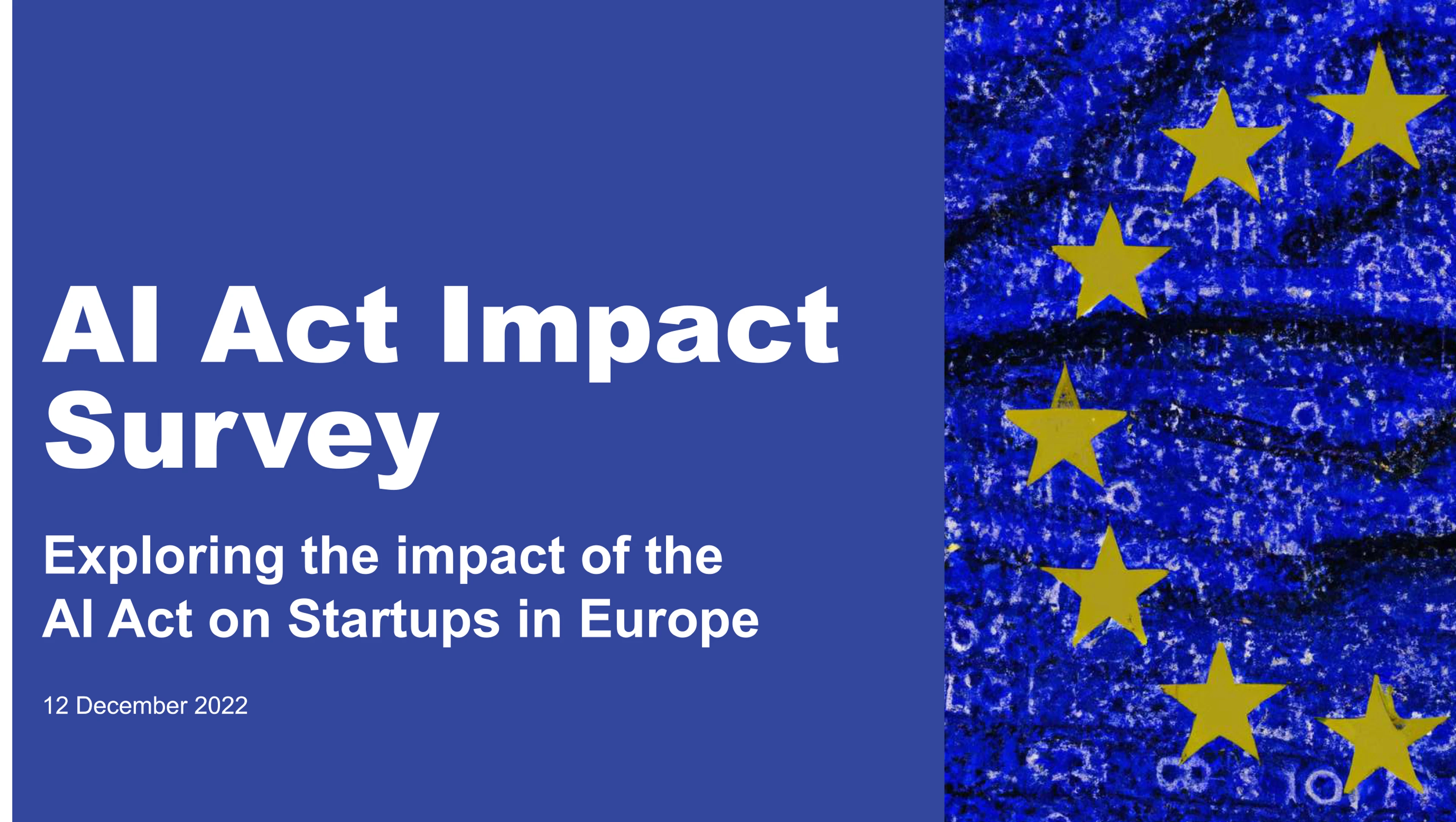
appliedAI surveyed European start-ups in the wake of the AI Act, a European Union proposal for a law regulating artificial intelligence scheduled for 2023. It sheds light on what consequences the implementation of the AI Act could have for companies and the use of their AI systems. Based on this, the survey formulates recommendations for action for policymakers.
The EU's upcoming AI regulation is important to minimize foreseeable damage from AI. At the same time, the new requirements for high-risk AI systems will make development and operation more complex and expensive. At appliedAI, we are working with our partners and the ecosystem on approaches to accelerate AI innovation in line with regulations to strengthen the competitiveness of AI from Europe.
Dr. Till Klein, Head of Trustworthy AI, appliedAI Initiative GmbH
What is the EU AI Act?
The EU AI Act consists of a set of regulations designed to ensure that AI-based systems do not affect other people's safety, health, and fundamental rights. Specific proposals have been drafted to regulate the future use of artificial intelligence (AI) to achieve this goal. Different legal regulations are used depending on how great the risk potential of an AI application is. AI systems are classified according to four categories:
1. prohibited systems
2. high-risk systems
3. systems with information requirements
4. low or minimal risk systems.
What is the AI Act Impact Survey about?
The appliedAI AI Act Survey examined the impact of the AI Act on European start-ups. Over 100 European AI start-ups and other AI companies participated in this survey. For a more complete picture, the opinion of 15 venture capital firms has also been included in the analysis. The result of the study is a picture of the views of AI innovators on the proposed AI regulation.
What is the goal of the AI Act Impact Survey?
The EU AI Act’s focus is still on the potential risks and negative impacts of the application of AI. But it is also essential that this discussion remembers how AI can be used for our goals in the European Green Deal, healthcare, digital sovereignty, or other areas.
With the EU already lagging in AI innovation, this slowdown could devastate the AI ecosystem in the EU as affected companies also consider leaving the EU for a country with more favorable regulation.
Chloe Pledel, Chef de projets européens, Hub.France.AI
What impact could the AI Act have on European innovation?
The start-ups surveyed are developing various AI applications. Their survey responses raise concerns that the EU AI Act threatens European AI innovation. 33% - 50% of AI applications would be classified as "high-risk" under the current status and would have to meet strict requirements in the future. This exceeds the EU Commission's 5-15% assumption many times over. 50% of AI start-ups believe the AI Act will significantly slow European AI innovation. 16% are considering not developing AI at all or outside the EU. The surveyed venture capital firms also believe that the AI Act will drastically reduce the competitiveness of European start-ups.
What recommendations does the report make to policymakers?
European competitiveness should be at the center of discussions. For this, the number of high-risk cases should be narrowed down so that only the expected 5% - 15% of AI systems fall into this risk category. Regulatory sandboxes should be designed to drive innovation in a protected but attractive environment. In addition, the needs of European AI start-ups should be considered, especially in areas considered very difficult or costly.






















